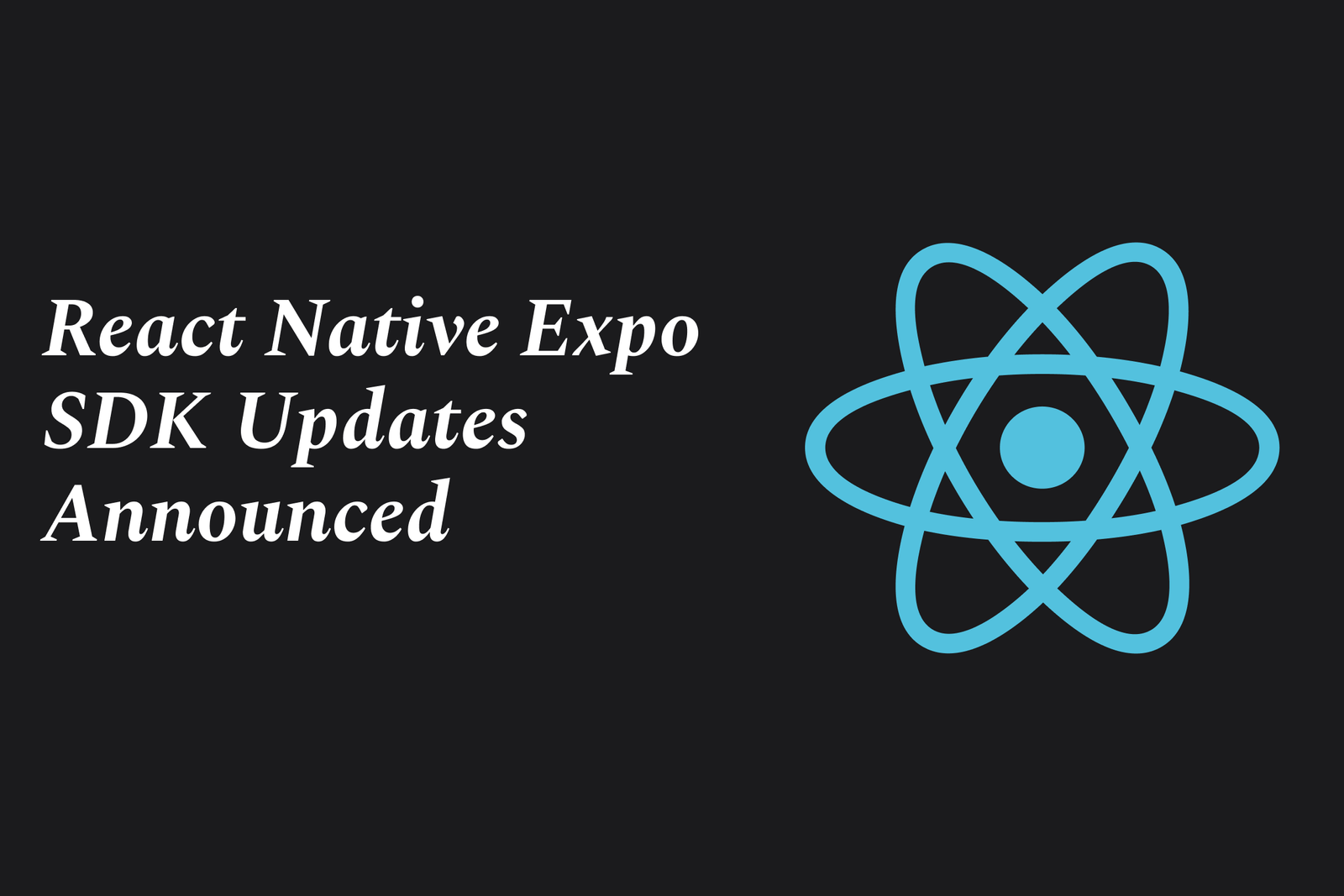React Native Expo SDK Updates Announced
The React Native Expo SDK updates introduce new features, performance improvements, and React Native version upgrades. They emphasize incremental version upgrades for stability, enhanced tooling, and extended support via EAS services, ensuring smoother development and better app compatibility.
React Native Expo SDK Updates Announced
1 ) Overview of Expo SDK Upgrades
Expo recommends incremental upgrades of SDK versions, upgrading one version at a time to isolate issues efficiently.
The latest SDK version becomes the current release supported by Expo Go, with previous SDK versions no longer supported on Expo Go.
For production apps, development builds are suggested since EAS services maintain longer backward compatibility with older SDKs but not indefinitely.
Users can download specific Expo Go versions via expo.dev/go for Android devices and iOS simulators; however, due to iOS restrictions, only the latest Expo Go version is installable on physical iOS devices.
2 ) Steps to Upgrade Expo SDK
Upgrade the Expo SDK package:
Use package managers (npm or yarn) to install the latest Expo or a specific SDK version using commands like `npx expo install expo@latest` or `npx expo install expo@^53.0.0`.
Upgrade dependencies:
Run `npx expo install fix` to align dependency versions with the new SDK.
Update native projects:
For Continuous Native Generation users: delete existing `android` and `ios` directories to allow regeneration on the next build.
For others: run `npx pod install` for iOS and apply changes suggested by the native project upgrade helper; adopting prebuild is recommended for easier future upgrades.
Review release notes:
Carefully read the SDK changelogs and “Upgrading your app” sections for breaking changes, deprecations, and additional instructions relevant to the upgrade.
3 ) SDK Changelogs and Deprecated Versions
Each Expo SDK release is accompanied by comprehensive release notes detailing new features, deprecations, and breaking changes.
SDK versions 53, 52, 51, and earlier have specific changelogs available to guide developers.
Older SDK versions are deprecated but their changelogs remain available for reference, especially for those significantly behind on updates.
4 ) Community Feedback on Upgrading Expo
Developers often express that upgrading Expo SDK, especially over multiple versions, can be extensive and time consuming.
Staying on outdated SDK versions is discouraged as Expo Go stops supporting old versions, complicating development and testing.
Incremental upgrading helps manage complexity, and planning timely upgrades is advisable to maintain compatibility and development efficiency.
5 ) Recent and Upcoming Expo SDK Releases
Expo SDK 53 includes React Native 0.79 and is available with beta releases.
React Native 0.80 support is available in canary releases, with Expo SDK 54 expected to support React Native 0.81 )
Regular updates to Expo and EAS services continue, including performance improvements, build enhancements, and support for new React Native versions.
6 ) Additional Improvements and Features
Ongoing improvements in EAS Build, hosting services, dashboard UI, and developer tooling.
Increased build speeds and new feature additions like custom avatars, project icons, and better project organization.
Security updates and better privacy compliance continuously integrated into the platform.
Summary
Upgrading the React Native Expo SDK involves careful incremental updates to ensure app stability and optimum compatibility, aided by detailed release notes and community experiences. Expo continues to support the React Native ecosystem actively with new SDK releases, enhanced build tools, and improved developer experiences.
https://justacademy.in/news-detail/android-accessibility-tool-advancements
https://justacademy.in/news-detail/flutter-for-logistics-and-delivery-apps
https://justacademy.in/news-detail/android-notification-channel-changes
https://justacademy.in/news-detail/react-native-and-kotlin-multiplatform:-perfect-together?
https://justacademy.in/news-detail/top-animation-packages-for-flutter
Related Posts
Java supports GDPR and data privacy by enabling secure data handling through encryption, controlled access, and precise data management. It allows developers to minimize PII exposure, ensure data confidentiality, and design workflows that comply with data protection regulations effectively.
Java code quality tools have evolved to include advanced static analysis, integrated security checks, and AI-powered code reviews. These updates help developers detect bugs, enforce coding standards, and enhance security, streamlining the development process and improving overall code reliability.
Java remains a cornerstone in big tech companies, evolving with modern features like records, pattern matching, and virtual threads. Its robust ecosystem, enhanced performance, and growing AI integrations keep it vital for both legacy systems and innovative new projects.
Java and CI/CD pipeline optimizations streamline Java application development by automating builds, tests, and deployments. They improve efficiency through parallelization, caching, and secure secrets management, enabling faster feedback loops and more reliable, scalable software delivery.
Java supports modern cryptography standards through its flexible Java Cryptography Architecture (JCA), enabling integration of advanced algorithms like AES, EdDSA, and post-quantum tools. Libraries like Bouncy Castle offer FIPS-certified, hardware-accelerated implementations for secure development.
Java 23 enhances record patterns by enabling concise, direct destructuring of record components within pattern matching, simplifying type checks and data extraction. This improvement boosts code readability and expressiveness by reducing boilerplate in handling immutable data classes.
Java remains a top choice for mobile app backends, powering scalable, secure, and high-performance server-side solutions. Latest trends include cloud-native microservices, reactive programming, and enhanced JVM optimizations, enabling efficient, flexible, and robust mobile backend development.
Java SE 24 and LTS Java SE 21 offer enhanced features and performance, while Apache Spark 4.0.0 introduces Scala 2.13 support and advanced ML and SQL capabilities. Together, they empower developers to build scalable, high-performance data applications with modern tools.
JUnit 5 modernizes Java testing with a modular architecture, improved assertions, and seamless Java 8+ support. Beyond JUnit, tools like Mockito and AssertJ enhance mocking and assertions, creating a powerful, flexible ecosystem for writing clean, efficient Java unit tests.
Java plays a pivotal role in cloud automation tools by providing a robust, platform-independent language used to build scalable automation frameworks like Jenkins and Selenium, enabling efficient CI/CD pipelines, testing, and orchestration across diverse cloud environments.










